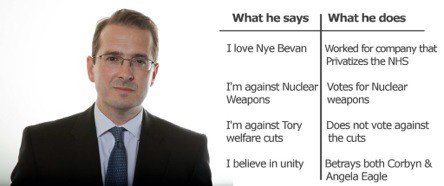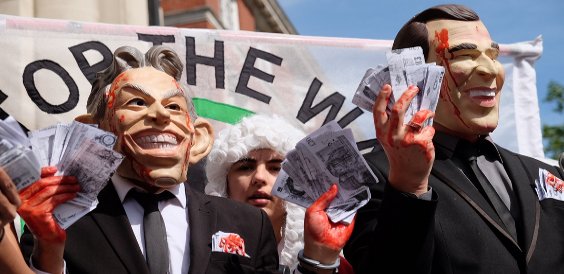By Daniel Margrain
In pre-enlightenment times, the earth was widely perceived as a stable force at the centre of the universe overseen by God. Theologians rationalized intellectual curiosity and any challenges to this prevaling orthodoxy as akin to bringing forth evil into the world. Dissenting ‘wrongdoers’ were required by the church to seek salvation in a deity in order to absolve themselves of their intellectual impulses.
But as theology eventually began to accede to scientific inquiry, salvation correspondingly began to take root in a system of ideas embodied in the philosophical writings of Aristotle.
According to Aristotle, the positions in society that individuals were perceived to have naturally occupied, all dovetailed together to form a pattern of the universe which gave everything its purpose. Aristotlian philosophy predicated on order, but underpinned by uneven relations of power, was to be one of the guiding principles of the enlightenment.
So although the enlightenment was a great leap forward from the idea that the power of Kings was historically fixed predicated on a grand purpose and design ordained by God, modernity nevertheless remained tied to the concept of progress as being that of the development of the human mind and of human nature as unchanging.
Knowing your place
The classical economists who arose out of the enlightenment were thus able to reinforce the notion that social and economic hierarchies and the establishment of private property were fixed and ‘natural’ consequences of progress borne out of intellectual endeavour.
Similar claims are made by evolutionary psychologists who reinforce the ideology that human behaviour or psychological characteristics are a biological adaptation shaped by natural selection hard-wired into the human brain.
The notion that human behaviour is genetically determined and that biology holds the key to solving social problems, has a long history going back to Charles Darwin’s cousin, Francis Galton, in 1865.
Sociobiology and evolutionary psychology reinforce the ideological notion that the mass of ordinary people are conditioned to know their place within an ‘unchanging’ society even though the great changes wrought by the Industrial Revolution prove that power had transferred from feudal landlords to corporate grandees.
Alienation
By the mid 19th century, the supplanting of the aristocracy of land with money led to the transference of the great estates to commodities. Karl Marx was the first to analyse in detail the nature of the emerging capitalism in which the worker devotes his life to producing objects which he does not own or control. The labour of the worker, according to Marx, thus becomes something separate and external to him.
In the year of Marx’s birth in 1818, a young English author called Mary Wollstonecraft Shelley published the first edition of the Gothic and Romantic science fiction novel, Frankenstein – the tale of a monster which turns against its creator. It’s the externalizing and uncontrollable forces Shelley describes in her masterpiece that draws parallels with the daily lot of workers outlined by Marx.
It was precisely the lack of any control workers had in the production process during the Industrial Revolution that led to the Luddites smashing up the machines that churned out the fruits of their ‘externalizing’ or alienated labour. For Marx, alienation is a material and social process that is intrinsic to society and nature in flux.
The dialectic
In dialectical terms, changes in nature are marked by a state of continuous motion driven by the struggle of conflicting and antagonistic forces. At some point, small incremental quantitative shifts in nature over time will eventually result in fundamental qualitative changes in appearance or form even though in ‘essence’ their nature remain one and the same.
An acorn, in becoming an oak, for example, will have ceased to be an acorn. Yet implicit within the acorn is the potential to become an oak. Equally, since humans are an integral part of nature, they cannot be excluded from the contradictory socioeconomic forces that interract with it. At some point these socioeconomic forces will eventually become something else and therefore cease to exist in their current form.
The ten-thousand year history of class-based societites from slavery to feudalism, through to capitalism, are indicative of these changes. Colonialism and imperialism, under capitalism, have been marked by the ability of the oppressors to suppress opposition to their rule using monsters as part of their strategy of divide and conquer.
But what the oppressors rarely factor into their strategies, is the potential for working people to break free from the chains that bind them. Attempts by the ruling class-owned corporate media to manipulate the public into accepting their oppression cannot be sustained indefinitely.
The enemy of my enemy is my friend
Similarly, there are limits to which monsters will be supine to their creators and many have been known to break free, and even turn the tables, on them. This, for example, was the case in Afghanistan during the 1980s when then US president Jimmy Carter’s covert programme financed tribal groups known as the mujahedin, including Osama bin Laden, against the common enemy, the Soviet Union, as part what was called, Operation Cyclone.
From this spawned other monsters, the Taliban and Al-Qaeda, all of whom felt betrayed enough to turn their ire on their creator in the form of undertaking terrorist attacks, most notably and spectacularly in New York on September 11. The Zionists in Israel are an example of a US-funded monster that has managed to have been kept under relative control, despite its frequent attempts to break free from its masters leash.
In all cases, the monsters described have bitten the financial hand of Washington that feeds them resulting in often unintended and unpredictable, geopolitical consequences. Indeed, Faustian pacts with the devil have, largely by way of ‘blow back’, contributed significantly to the exponential spread of terrorism worldwide.
School of the Americas
There are, however, other monsters which their creators have managed to exert tight control. An example, is the extent to which Washington maintains leverage over terrorist fighters in central and south America who continue to emerge from what was formerly known as the School of the Americas located at Fort Benning near Columbus, Georgia.
The SOA was responsible for training the regime that overthrew the Honduran government headed by Manuel Zelaya in June, 2009, as well as fomenting the March, 2016 coup that culminated in the assassination of the leading grass-roots Honduran environmental activist, Berta Caceres.
More recently, SOA-trained fighters have been implicated in ongoing attempts to destabilize Venezuela. In addition, ISIS and their various terrorist offshoots in Syria are trained and funded, either overtly or covertly, by numerous foreign mercenary forces as part of the imperialists’ geopolitical and regime change strategy in the country.
Saudi Arabia and Ukraine
Saudi Arabia, who is one of the key players in Syria, has also been bombarding Yemen since at least September, 2015 using weaponry sold to them by the UK-US governments’.
Also around this time – February, 2014 – the US instigated a violent coup d’etat in Kiev against the democratically-elected government of pro-Russian President, Viktor Yanukovych.
From 2015 to the present, the policies of successive Ukraine governments’ have been their unwillingness to both ratify and implement the Minsk Agreement which in, part, is designed to guarantee the security of the people of the Donbas region and to secure a lasting peaceful resolution to the year-long Russia-Ukraine conflict.
Despite this, the Biden administration has not applied any pressure on the current Kiev regime under President Volodymyr Zelensky to negotiate in good faith, even though it is obliged in law to support the agreement.
Zelensky’s recent provocation in which he urged NATO to pre-emptively attack Russia with nuclear weapons, is not only indicative of somebody who is not serious about wanting a peaceful outcome to the conflict, but is also a potential danger to the world.
The fact that the US and UK continue to funnel weapons to paramilitary neo-Nazi’s and ultra nationalists such as the Azov Battalion and other fascist followers of Hitler-collaborator, Stepan Bandera, in support of their monster in Kiev, would indicate that the intention of the UN/NATO powers is not for a peaceful resolution but to prolong the conflict as part of a geopolitical proxy war.
In conclusion, the world’s most powerful and unrestrained monsters are not individuals who commit isolated atrocities but, rather, are the likes of the CIA, the Desk Killers in Washington and the kinds of terrorists linked directly to the British state.
Governments’, whose role is to facilitate the objectives of the military-industrial complex in matters of war, are also subject, more broadly, to imposing the policy agenda’s of their private-public policy-making partners – ie Central Banks, BIS, Chatham House etc – at the top of the global chain of command. These psychopaths will do anything in order to maintain their privileges in the service of naked self-interest, money and power. God only knows who will stop them.




 David Davies MP
David Davies MP 





 John Rentoul
John Rentoul




